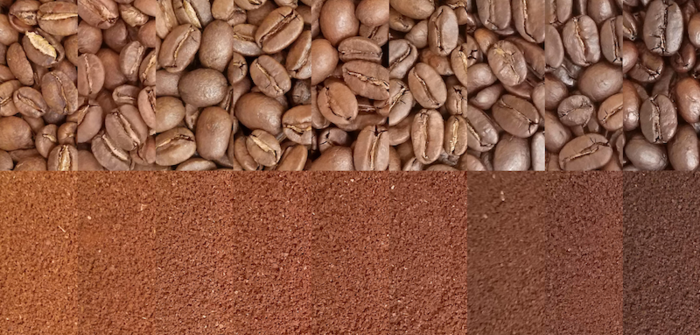
This is based on an analysis technique I was using way back when I was tracking roasts with pen and paper. I've written about that elsewhere, but it never really caught on, I think mainly because it's historically been too time consuming to slice and dice the data like this. Building the feature into CRUCS makes that a lot more accessible so hopefully people will start using that to better contextualize their roasting and tasting data.
CRUCS version 1.2.0 is now live. The main addition is the Analysis menu and report. There are some other uses, but the main idea here is you can import data from multiple batches and get a view into how these compare within various defined ranges. There's some room for improvement to the feature, but it's useful enough that I didn't want to further delay getting it out. Should do a tutorial video on that soon.
The next thing that I'd like to try adding once the currently pending release is out will let me talk about roasting plan design in very sci-fi sounding terms like applying a localized time dilation (which is very useful if you're designing training exercises). I've also had a thought on further enhancements to the time entry fields.
Continuing to work on the next release of CRUCS. I'm pretty sure that's almost ready and I just need to spend the time running down my final checks. I've been putting off working on another set of features for the release after that because the analysis feature for 1.2.0 is too useful to hold back while I work on other mostly unrelated stuff.
Updated the shop's web site to tell everybody about the new coffees now available and let people order those through the web site. I only bought 66 pounds of the Bolivian coffee and since I'm roasting that two different ways I expect to sell out of that very fast.
For the decaf Colombian coffee, the intent was to try to get something that's a good match for the previous lot of decaf Colombian coffee. That happened. This is the motivation for having the Mexican coffee as I was going to run out of the decaf Colombian and needed some other stuff to put on the order to not get killed on the freight charges.
This one is a brighter, more vibrant coffee compared with the roasts I did for the Bolivian coffee. Lighter (more medium) body, good sweetness.
Next up is the new coffee from Mexico. We used to work with a supplier who specialized in finding nice Mexican coffees as opposed to the more common cheap flavor base sort of thing that has long dominated the expectation of Mexican coffees, but I guess that was a bit too narrow a niche. Still, it's nice when the timing works out that I find something a little more interesting and have space to bring it into the product line.
I decided to also try running a dark roast of this, stretching things out a bit compared to the exploratory roast. This subdues that melon note, though a bit is still present, and that ended up coming out very smooth, still a bit sweet, very nice. It's still very obvious in comparison that these are the same coffee roasted two different ways.
It has sort of a honeydew thing going on in the aftertaste, lots of body, easy to drink. I still need to run the numbers on this but I probably need to charge somewhere around $30 per pound for that and I'll only be getting a few small batches of this out of the roaster.
Tasting production test batches of new coffees today. First up is the medium roast of a super fancy Bolivian coffee that I'll be charging a lot for and selling out of hopefully very fast. I wasn't too worried about this since on the exploratory roast I had a couple cups that were my favorites for a medium roast flavor profile that I couldn't tell much difference between. Pushed that roast a little faster and aimed for an end temperature in between those two cups.
One of the two coffee shipments has been delivered so I'll be sorting out how I want to roast a couple new things in that. There's another thing getting shipped in boxes and the last time I checked the tracking all 3 boxes were in the same facility, but 1 was scheduled to be delivered tomorrow and the other 2 were scheduled for the day after.
- Software
- https://typica.us
- Send Money
- https://typica.us/payment.html
Author of Typica software for coffee roasters.
